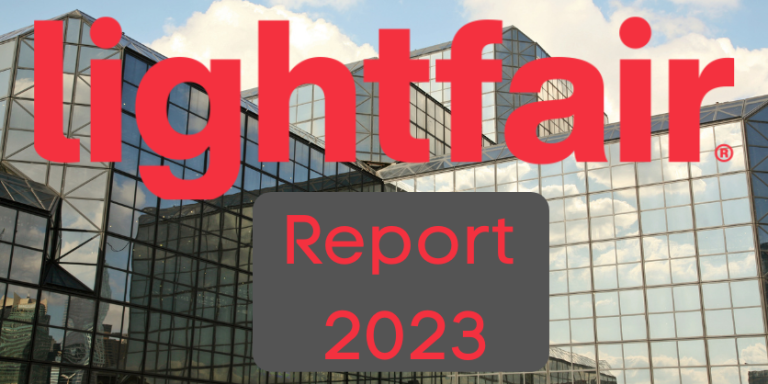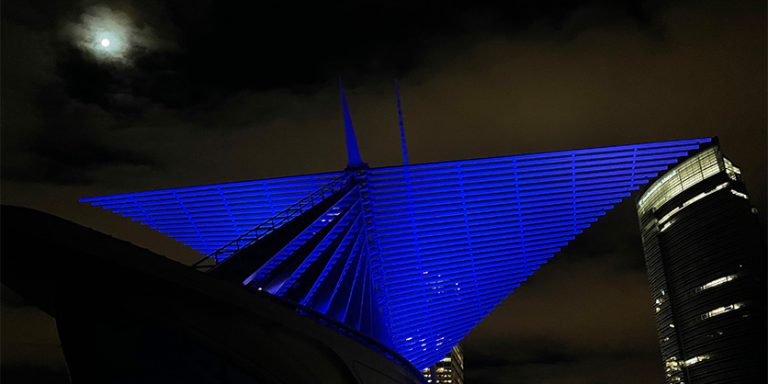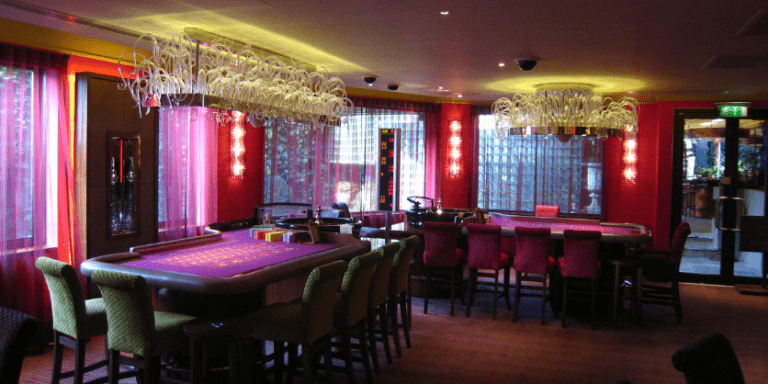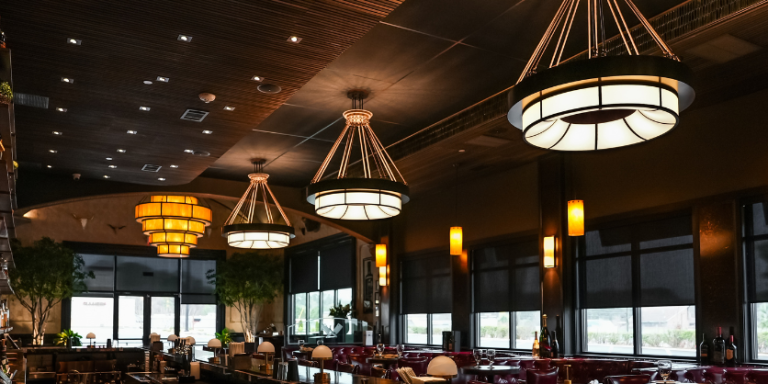Embracing User-Friendly Bluetooth Controls for Modern Lighting Systems
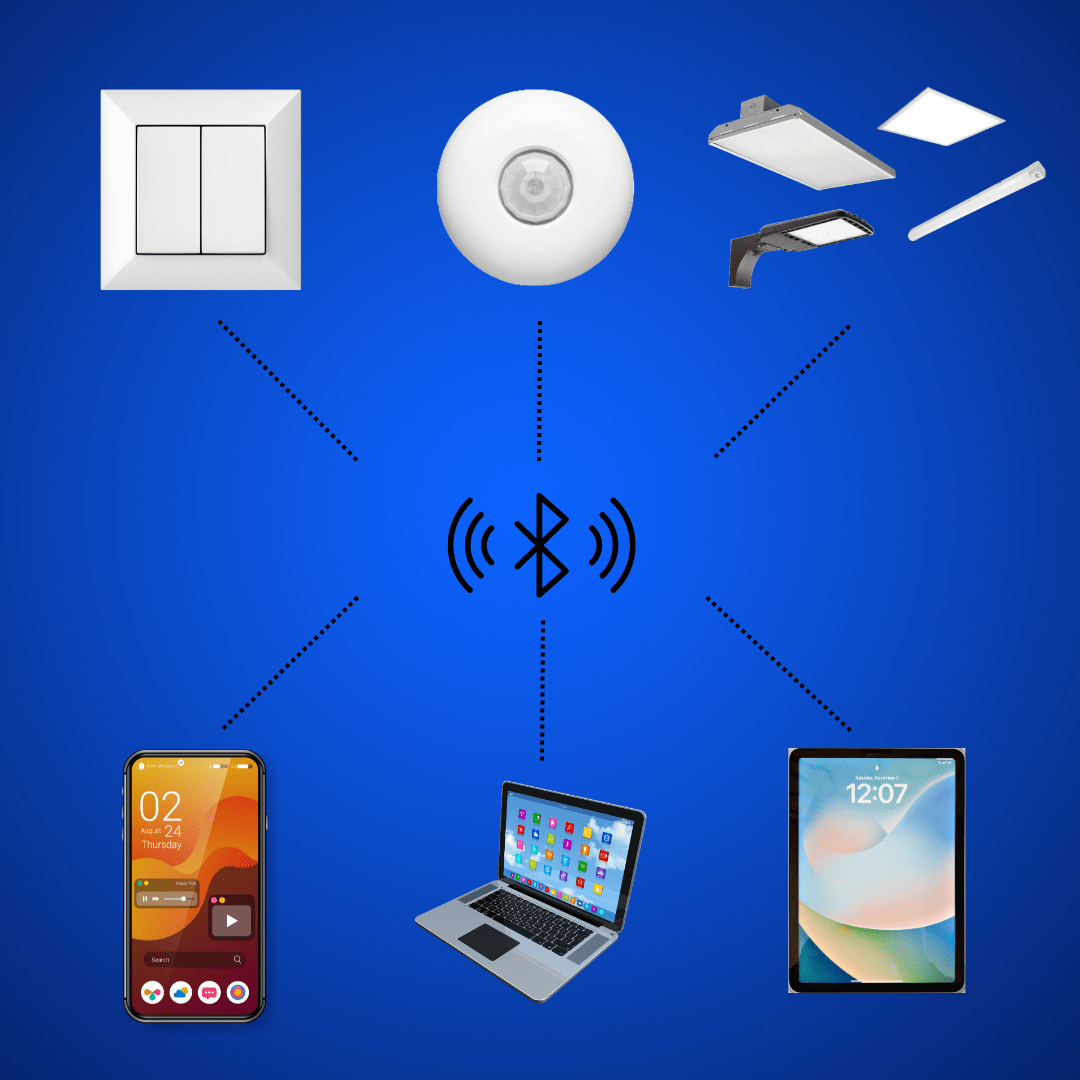
By Dañiel R. Luna-Fuller
As the world continues to move toward energy efficiency and sustainability, end users increasingly recognize the value of upgrading their lighting systems to LED. However, the benefits of this transition extend far beyond just energy savings.
By integrating smart controls into these systems, users can unlock a host of additional advantages, including:
- enhanced functionality
- improved user experience
- extra utility incentives at the time of setup
The latest innovations in Bluetooth-enabled controls represent a significant leap forward in this regard, offering convenience and flexibility that go well beyond traditional lighting systems.
The Evolution of Lighting Controls
For many years, occupancy sensors were the gold standard in lighting control, offering a simple yet effective way to reduce energy consumption by turning lights on and off based on room occupancy. While these sensors still have their place, modern Bluetooth-enabled controls are ushering in a new era of lighting management. These advanced systems are not just about turning lights on and off; they offer a comprehensive suite of features that allow users to fine-tune their lighting environments in ways that were previously unimaginable.
Companies like Silvair (which is integrated into some MaxLite fixtures and control) and Casambi have been at the forefront of this movement, partnering with manufacturers to deliver fixture-integrated controls at a price point that makes sense for both commercial and residential users. These controls are designed to be user-friendly, with intuitive interfaces that allow users to take full control of their lighting systems without the need for specialized knowledge or training.
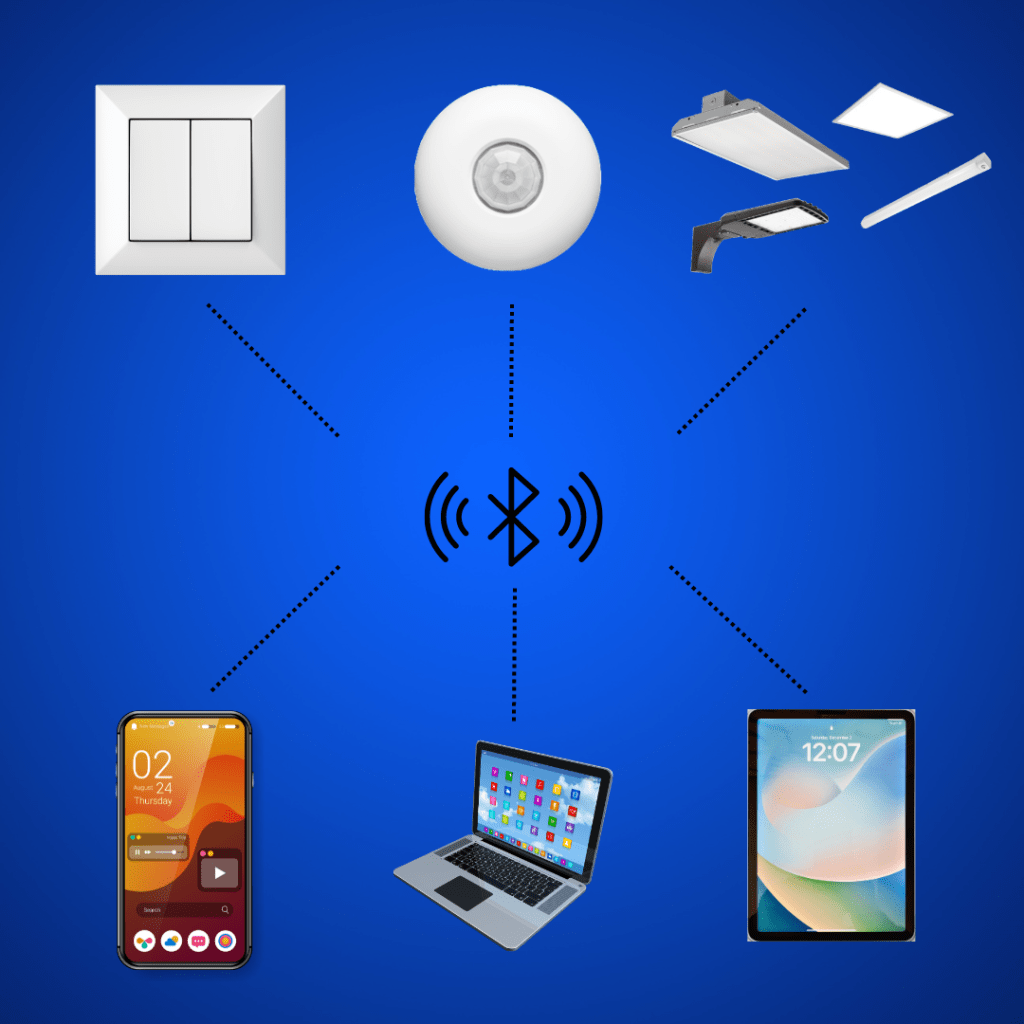
Empowering End Users and Installers
One of the standout features of these systems is their ability to simplify the installation and programming process. Traditionally, setting up advanced lighting controls often required the expertise of specialists, leading to significant setup fees and ongoing troubleshooting charges throughout the life of the system. However, with Bluetooth-enabled controls, this is no longer the case.
Installers and Energy Service Companies (ESCOs) now have the opportunity to assist with the base programming of these systems, providing a solid foundation that end users can build upon as their needs evolve. This approach not only reduces the upfront costs associated with system setup but also empowers end users to make adjustments and optimizations as they see fit. Whether it’s adding new lighting scenes, adjusting dimming levels, or incorporating additional fixtures into the system, users have the flexibility to manage their lighting environments without the need for costly specialist visits.
Seamless Integration Across Platforms
Another key advantage of modern Bluetooth controls is their compatibility with multiple platforms. Many of these systems are designed to work seamlessly with computers and both Android and iOS devices, ensuring that users can access and control their lighting systems regardless of their preferred mobile platform. This cross-platform compatibility is a significant benefit, particularly in environments where multiple users may need to interact with the system.

The controls themselves are plug-and-play, meaning that users can start managing their lighting systems with minimal setup required. Whether they want to create simple lighting scenes or design more complex setups that respond to specific triggers and events, the flexibility of these systems allows for a wide range of customization options. Additionally, for those who may be upgrading their lighting systems in phases due to budget constraints, the ability to add controls to already installed lighting is a major advantage. This modularity ensures that users can create a unified control system for their entire facility, even if the installation occurs over an extended period.
Case Study: John Logan College

The practical benefits of these advanced lighting controls can be clearly seen in real-world applications. At John Logan College, based in Carterville, IL, we had the opportunity to install the AleoBlue system in their gymnasium—a space that serves multiple functions and is used by a wide range of people throughout the day. The challenge was to create a lighting system that could meet the diverse needs of this environment while also maximizing energy efficiency.
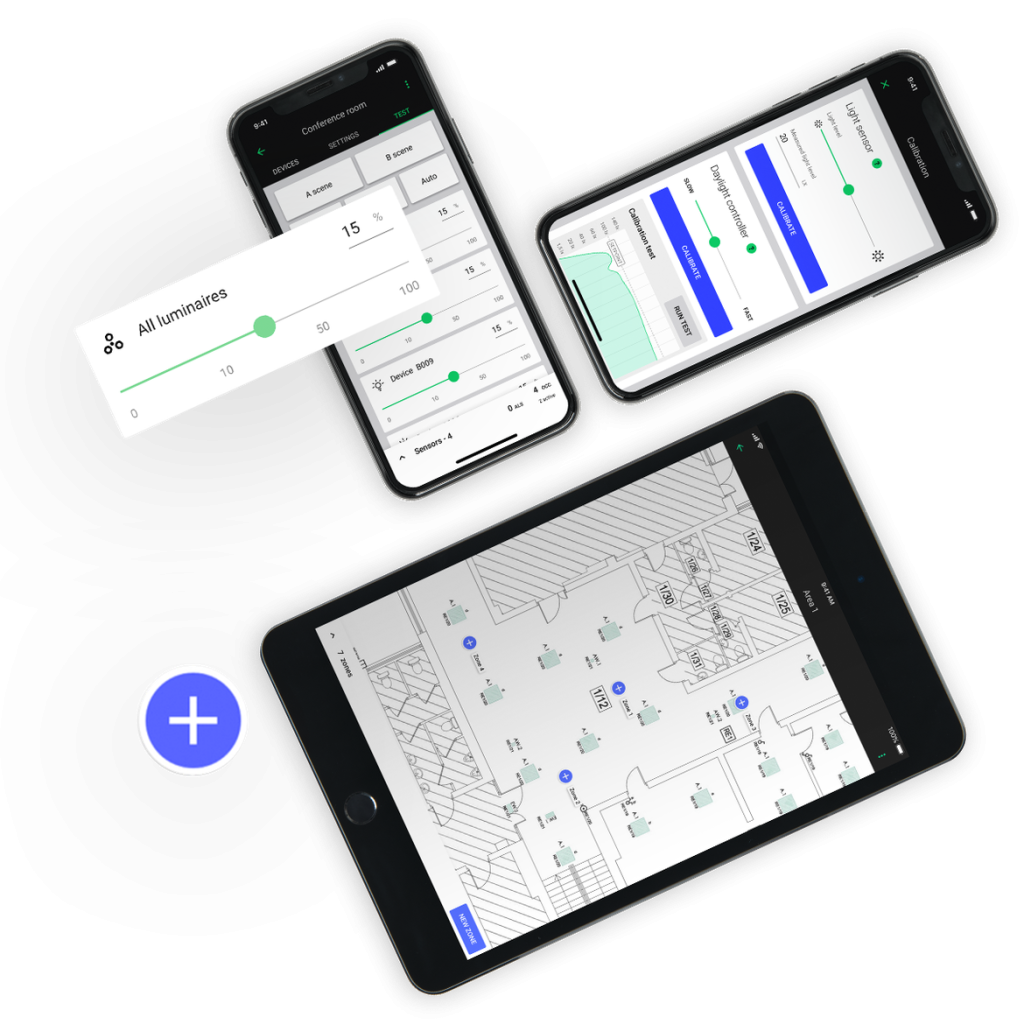
The AleoBlue system provided the perfect solution. One of the key features we implemented was the integration of traditional paddle switches, allowing students to manually control the lights as they moved from the locker rooms. This manual control was complemented by the ability to set up multiple lighting scenes tailored to the various activities that take place in the gymnasium. Whether the space was being used for basketball, volleyball, or informative school functions, the lighting could be adjusted quickly and easily to create the ideal environment.
In addition to manual control and preset scenes, the system was also programmed for motion and vacancy detection. This feature was particularly useful given the gymnasium’s role as a passageway and a study area. The dim-to-off program ensured that the lights would gradually dim and turn off when no motion was detected, leading to additional energy savings without compromising the user experience.
What made this installation truly successful was the feedback loop we established with the college’s coaches and facility director. After the initial setup, we worked closely with them to fine-tune the lighting scenes, ensuring that the light levels were not only optimal for each sport but also comfortable for the athletes. This collaborative approach allowed us to create a system that met the specific needs of the college while also providing the flexibility to make adjustments as those needs changed.
A System That Grows with You
One of the most compelling aspects of these Bluetooth-enabled lighting controls is their ability to adapt to the changing needs of the user.
As we saw at John Logan College, the system’s flexibility allowed for continuous optimization and improvement based on real-world feedback and this is a revenue source for some lighting designers, electrical contractors, lighting agnts and sometimes distributors. The customer can choose what level of support and from whom, they need. Moreover, the ease with which users can be added or deleted from the system further enhances its usability, making it an ideal solution for dynamic environments like schools, colleges, and other facilities with multiple users.
In conclusion, the transition to LED lighting is just the beginning. By embracing modern, user-friendly Bluetooth controls, end users can take their lighting systems to the next level, enjoying enhanced functionality, greater control, and increased energy savings. Whether you’re managing a large commercial space or simply looking to improve the comfort and efficiency of your home, these advanced controls offer a powerful and flexible solution that can grow with you over time.
About the author:


Dañiel R. Luna-Fuller is the business owner of Luna Cultivation Consultants and Luna Lighting, a project-based design service that focuses on photometric layouts. Luna Lighting will assist with project energy audits and help find a solution that will allow for energy rebates through local utilities. Find more here
Others Articles from Dañiel R. Luna-Fuller
The Power of Value Engineering in the Lighting Industry – US Lighting Trends
Horticulture Lighting – “It isn’t all Cannabis!” – US Lighting Trends



